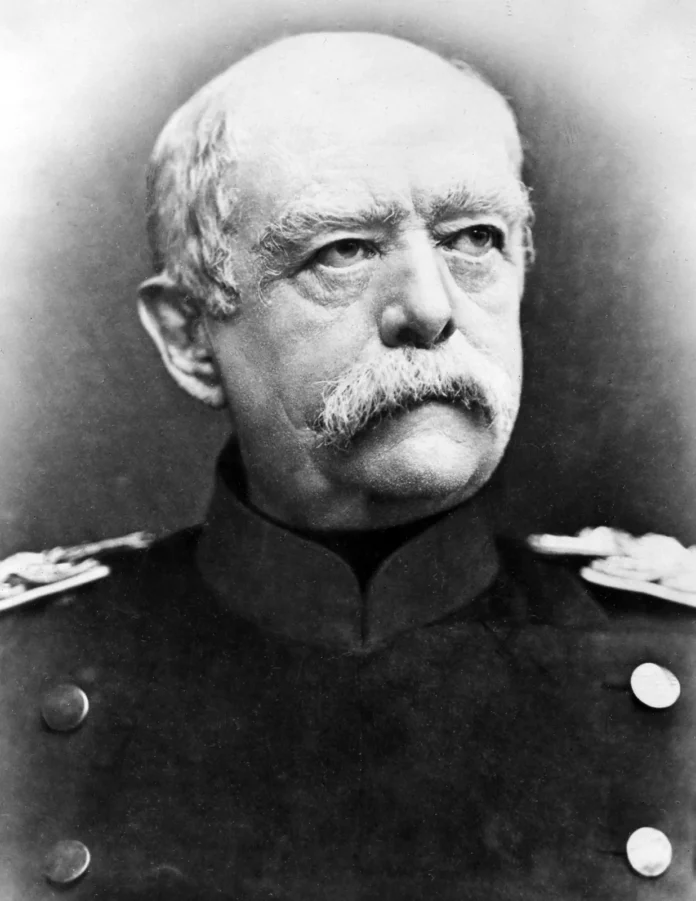Author: Brian Rathbun
Affiliation: University of Southern California
Organization/Publisher: International Security
Date/Place: Summer 2018/USA
Type of Literature: Journal Article
Number of Pages: 50
Link: https://direct.mit.edu/isec/article/43/1/7/12204/The-Rarity-of-Realpolitik-What-Bismarck-s
Keywords: Bismarck, Realpolitik, Rationality, International Politics
Brief:
In this article, the author aims to demonstrate that research in cognitive psychology provides a strong foundation for classical realism. Rationality is a demanding cognitive standard that only a few leaders manage to meet. It requires objectivity and purpose, but human beings tend to view the world through a subjective lens and use decision-making as a shortcut to avoid deep analysis. Cognitive psychology research shows that rational thinking does not follow the same pattern in every individual, and some are more objective and purposeful than others. If Realpolitik depends on rational thinking, it cannot be taken for granted, as rationality will be confined to a limited number of leaders with specific individual characteristics.
To support his argument that rationality is rare and Realpolitik an exception in foreign policy, the author examines a case in which Realpolitik should be particularly common among foreign policy practitioners: Prussia before German unification. At the time, Prussia was the weakest of the great powers, surrounded by potential enemies and geographically vulnerable. This external environment may have spurred rationalist thinking and rational behavior. Prussian foreign policy was directed by Otto von Bismarck, the most famous realist practitioner of all time. Rather than following the views of his conservative peers, he chose to be an exception in his country, acclaimed for his cognitive psychological style. There has been virtually no major figure in Prussian or, after unification, German politics who shared Bismarck’s views on foreign affairs, not even his fellow conservatives. Realist scholars often make reference to realist practitioners like Bismarck and his achievements when explaining how international politics works, but in doing so, they inadvertently highlight the relative infrequency of Realpolitik.
The author divides the article into four sections. In the first section, he develops a working definition of Realpolitik based on classical and structuralist realist scholarship. He defines Realpolitik as the pursuit of egoistic state interests in light of largely material structural constraints and suggests that it can be understood as doing the best one can for one’s country in any given situation. All realists agree that the nature of international politics encourages such rationality. In the second section, based on classical realist scholarship, he argues that Realpolitik requires “procedural” rationality, which relies on both objectivity and deliberation. In the third section, the author connects traditional insights with the literature on cognitive psychology, demonstrating that some individuals have a greater “epistemic motivation” – a commitment to rational thought – and how self-interest and rational thinking combine to generate familiar foreign policy tendencies. In the final section, the author explains why the case of Bismarck is so relevant. He asserts that if Realpolitik is present where systemic constraints are greatest, then 19th century Prussia should have been full of realists. He then discusses Bismarck’s realism, highlighting how his egoistic commitment to Prussia, rational thinking, and epistemic motivation shaped his foreign policy approach. This article stands out, even though Bismarck’s realism is already well known, due to the author’s approach of grounding it in psychological commitment to objectivity and deliberation. The author also contrasts Bismarck’s case with that of his conservative allies, who had less ego and less epistemic motivation and were therefore less self-interested in their approach to foreign policy. They were even willing to sacrifice Prussian interests, and were not willing to wage war against the Austrian empire, which Bismarck saw as necessary to exclude the Habsburgs from the Germanic sphere and create a unified state.
The author concludes by discussing the implications of his argument for international relations theory and foreign policy. He argues that realists’ ability to offer any explanations of foreign policy based on instrumental rationality is limited, given that most leaders lack the required state egoism and cognitive style. He suggests that Neoclassical realism is a more productive avenue for academic pursuits. Realpolitik, on the other hand, is likely to shape the foreign policy of rational leaders, and those who practice Realpolitik will be rewarded by the system in a way that less-rational thinkers are not. One question that may arise is whether it is theoretically possible for an international system to operate on the basis assumed by systemic realists without Realpolitik. The author responds by arguing that the world is largely composed of egoistic but non-rational states, making the pursuit of Realpolitik even more important.
By: Saima Rashid, CIGA Research Associate




